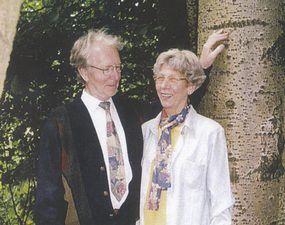Detroit (Reuters)
Dec. 30, 2011
............
The brown brick building at 4860 15th Street is at the center of the next downsizing to hit this failing city: the restructuring of the Archdiocese of Detroit.
St. Leo Catholic Church was built more than 120 years ago as Detroit was developing into a manufacturing powerhouse - first in shipbuilding and later in car making.
Today its neighborhood is one of the most abandoned pockets in one of the nation's most desperate cities. Like many Catholic churches around urban America, it has been hit by a shortage of priests and a dwindling supply of parishioners.
The Church's woes are all the more acute in the Motor City, where St. Leo and the archdiocese are stark examples of the impact of the near-death of the U.S. auto industry. Detroit's population-and the parish's flock-have withered along with the car factories. The Christmas Eve Mass performed this past weekend by 81-year old Bishop Thomas Gumbleton may be among the last ever held here.
Last month, Archbishop Allen Vigneron released a preliminary draft of the Catholic Church's third downsizing in Detroit in little more than a decade. The archdiocese has cut its parish count in Detroit's city limits to 59, down from 79 in 2000.
St. Leo is among nine parishes earmarked for closure in the Detroit area within the next few years. In 2012, its congregation is due to be subsumed by the larger St. Cecilia, about three miles away.
There is still hope for a reprieve. Vigneron is considering a plan to save the charity work in the basement by potentially moving it to a new site, and the pastor currently running both St. Leo and St. Cecilia has proposed keeping it open as a worship center used only occasionally.
But both are prohibitively costly considerations for an archbishop looking to shore up finances. Vigneron will deliver his final plan for the region in February.
"Almost all of us recognize that this world in the 21st century is very different than the 1950s and 1960s," Vigneron said in an interview. "We have to not accept it, but to deal with it."
...............
The cuts will hit Detroit particularly hard, however. The city is on the verge of insolvency and is already having a hard time providing basic services, such as functioning streetlights and removal of debris from demolished buildings.
In the absence of government, the Church is among the last institutions keeping neighborhoods afloat.
.......................
"Not unlike General Motors and Chrysler..., in order to be a vibrant player in the community, we have to do painful things," he said. "GM surely would have preferred to not discontinue Pontiac and GM surely would have preferred not to discontinue Oldsmobile, but they did what they had to do."
As for the Church, Vigneron said there is a point where the buildings and other property go from being assets to liabilities - no matter how sacred they may be.
"I have to make a discernment," he said. "It's never not about finances; we all have to pay our bills."
..........
"If a building sits vacant for even a little while it's an excellent candidate for vandalism," said Kevin Messier, who runs Real Estate Professional Services in Southfield, Mich. Thieves often strip the building of copper or pluck out stained glass.
The abandoned Martyrs of Uganda church in Detroit, closed by the Archdiocese in 2006, is an example of this decay.
It is littered with rubble, collapsed confessionals, a broken organ. Moss grows on its floors. The windows are gone and support pillars are crumbling because stones have been removed.
Messier's firm sold about three Michigan churches per month in 2011. The firm currently lists 32 churches for sale in the city of Detroit alone with an average selling price of $337,000.
PERISHING PARISH
Opened in 1889 at the start of Detroit's shipping and manufacturing boom, St. Leo was built to serve a parish in excess of 1,000 families. It still shows signs of an opulent age: massive murals hanging on the ceiling above the alter, towering windows dressed in stained glass.
Now it serves about 170 families. The parish generates $1,800 in weekly giving - not enough to cover an annual budget of at least $100,000 required just for building maintenance, repairs and utilities.
................
The streetlights a block away are wrapped in black plastic bags. Several houses stand vacant and, on a street where new houses were recently built, piles of debris from recent demolitions are uncollected.
Last week, the Detroit Public Library system closed four branches libraries to save on utility bills and librarian salaries. The city recently shut several schools amid declining enrollment.
................
Another proposal calls for the sale of the entire church, with proceeds going to open a new building for the charitable operations.
But that might be a tough challenge, considering the glut of empty churches on the market.
.....................
See full story at Reuters



 The priest, Father Jan Peijnenburg (who is not the emeritus archivist of the diocese, who has the same name), is 81 years old and has been living with his female friend for the past 46 years. Both are pictured to the left. Newspapers make of this friend his girlfriend, which would seem likely, because Fr. Peijnenburg is also the author of several recent leaflets in which he agitates against priestly celibacy, leaflets which he mailed to numerous people, the diocese claims.
The priest, Father Jan Peijnenburg (who is not the emeritus archivist of the diocese, who has the same name), is 81 years old and has been living with his female friend for the past 46 years. Both are pictured to the left. Newspapers make of this friend his girlfriend, which would seem likely, because Fr. Peijnenburg is also the author of several recent leaflets in which he agitates against priestly celibacy, leaflets which he mailed to numerous people, the diocese claims.
